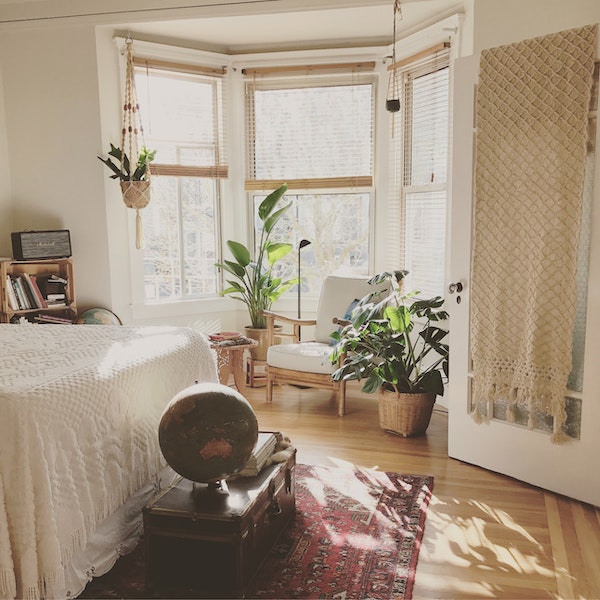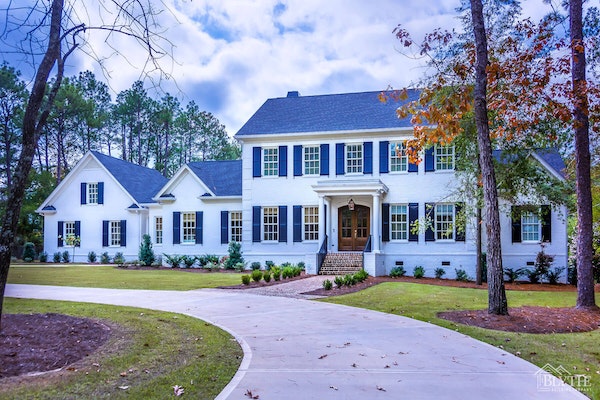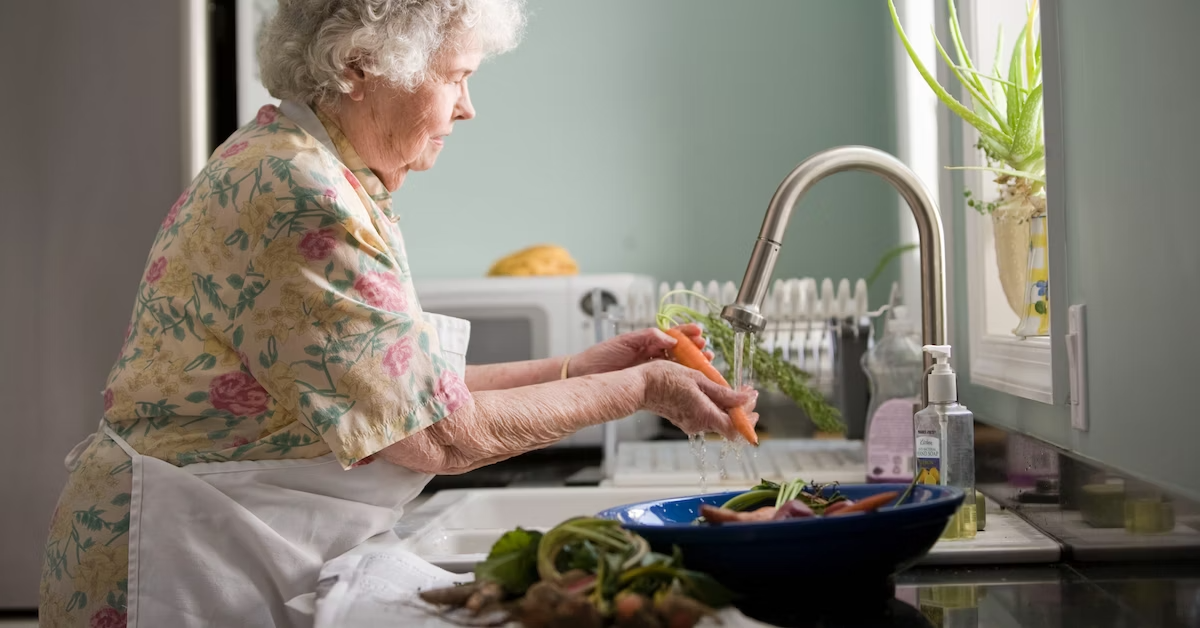This has been an incredibly rough year for those with senior adult family members and loved ones in nursing homes. Many families haven’t seen their loved ones since mid-March and had no warning this would be a long-term situation. It’s tough on the senior adults who can’t have visits and it’s heartbreaking for the family members who can’t go check on and hug their loved ones.
Loneliness, depression, isolation, and anxiety dramatically hurt senior adults’ health and overall well being physically and emotionally. Many residents in facilities are struggling and families feel helpless to make things better.
Some senior citizen homes are doing a great job at keeping their residents COVID-19 free, others are not. But all are facing unprecedented problems. They are trying to protect and care for their residents. But they are, unfortunately, not designed with a global pandemic in mind. And many are understaffed. It is just a difficult thing for everyone involved.
Some families have no choice. They are unable to care for their loved ones at home. And for some, the nursing home is a better option than being at home. Quite a few seniors don’t have family members to care for them and can’t live alone or maybe they have significant medical needs. So a nursing home may be the best place.
But a considerable number of seniors and families are finding creative new options to weather this crisis if they are able to.
Note: Please check with your doctor about what is best for your particular medical situation and how you can protect yourself from COVID-19.

Independent Living Is Changing for Seniors
Senior citizen homes have long been a sought-after commodity as adults retire and downsize. Older adults love the convenience, the camaraderie, and the independence available in senior living facilities.
Residents normally enjoy making new friends, eating together in a common dining room, and not having to worry about cooking meals, doing chores, or taking care of yard work. They love the activities for seniors like Bingo, concerts, art projects, and singing.
With COVID-19 impacting so many more nursing home residents disproportionately, everything is different. Senior care centers and senior homes can’t operate the way they once did as they try to keep people safe and healthy. Residents have to remain isolated in their own rooms. Group dining, communal activities, and visitors are often no longer allowed, understandably.
But this means millions of nursing home residents suddenly feel cut off from their lives, stuck in one room all day every day with nothing but a TV to keep them company. They worry that they will be hit with the virus next and have to face it alone without support from friends and family.
What living arrangement options do senior adults have in 2020?
Some seniors who previously would have considered moving to a nursing home may try other ideas this year. Many are looking to lower their living expenses, avoid a senior living facility, stay healthy, and have a better quality of life.
Stay in their own home
Baby Boomers in good health are rethinking their plans. They are staying home and not moving into senior apartments in nursing homes as early. They are trying to stay healthy and active as long as possible. Some are remodeling their homes to make them more up-to-date and accessible for walkers and wheelchairs just in case the need arises.
Downsize to a smaller home
Some Boomers and older adults are moving to patio homes with small yards or one-story cottages that are easier to manage. Whether they find a pre-owned home or decide to build a new home, this can be a big weight off of senior adults to have less house to worry about. They can also choose a place that has easy accessibility and may want to find a place fairly close to family or friends.
Move to a senior community
These are neighborhoods where only senior adults (often age 55+) are allowed to purchase or rent homes or apartments. They can be good options for those who want to downsize who can’t take care of a big house and yard anymore. But they are still able to be independent and value making friendships with other retirees in the community. And because the homes or apartments are not connected, they aren’t at high risk of contracting COVID-19 from other residents.
Seniors helping seniors
To create more affordable senior housing, some senior adults may consider finding a friend or roommate to live with them. This way, they won’t be isolated and can share expenses. They can also help each other with chores and offer emotional support. If they order groceries in and stay pretty isolated together, they shouldn’t have a great risk of coming in contact with COVID-19.
Senior helpers or home health nurses at home
Some seniors may prefer to stay in their own homes as long as possible so they may have a caregiver or companion come into their home. These helpers often assist with daily living activities, chores, cooking, and shopping. They also can provide much-needed companionship.
Those who require greater medical assistance may also hire home health nurses who can bring medical care directly to them. Although this can be pricey, it is often much less expensive than going to an assisted living facility.
People who choose to have a helper or nurse come in will want to be sure the helper follows CDC guidelines and recommendations to protect the senior adults from infection.
Moving in with family
Multi-generational living has been trending upward in recent years. More families are living together with multiple adult generations. This helps to save money, pool resources, and provide much-needed emotional support for everyone in the family. There are different ways to do this to fit your particular family’s needs.

A New Kind of Family Life
People may be able to temporarily house a senior adult relative in an extra bedroom. But if the loved one is quite independent or if contagions are a concern, they may appreciate having a suite or even an apartment with a bit more privacy and isolation potential.
Consider which living arrangement works best for your family
With COVID-19 in mind, it’s best to avoid sharing living spaces with your loved one, even if you are the caregiver. Try to provide them their own bedroom, bathroom, living space, and kitchen/kitchenette. This way you can isolate them completely from exposure to your family should another family members fall ill.
If you want to design a new home to take care of an elderly relative, we recommend one of the following arrangements:
A guest house/guest cottage
This provides the maximum privacy and safety to separate a senior adult from the main house where the rest of the family stays. But the elderly family member is still very close by and the family can care for them easily.
A mother-in-law suite with an outside entrance
If you decide to build a home with a mother-in-law suite, be sure the suite can be closed off from the rest of the house if needed. And be sure there is a private outdoor entranceway to the suite so that the senior adult doesn’t have to have contact with the living space and family members in the rest of the home.
An apartment in the basement
If the entire basement is the senior adult’s apartment, the door at the top of the steps should be able to be locked so that children can’t go downstairs if your family needs to separate from the family member. As much as possible, include a lot of natural light so your loved one doesn’t feel like they are living in a dungeon. And be sure to include a separate outside entrance for the basement apartment, as well.
An apartment over the garage
If your loved one has the ability to walk upstairs or you have a chair lift or elevator available in case of accessibility issues, an upstairs apartment over a two-car garage can be a great choice to house an elderly loved one. This also allows maximum separation and distancing if needed due to illness in the main family house.

Caring for Elderly Relatives at Home in 2020
The whole game has changed this year when we think about how to care for our loved ones. We don’t want them to get sick in a nursing home. And we don’t want them to get sick at home. But if your family decides to care for an elderly loved one at home, there are things you can do to keep them healthy and safe.
Keep yourself and the rest of your family healthy.
Be sure to wash your hands often, wear a mask when you go out, and avoid crowded areas. Try not to touch your face and keep frequently touched surfaces sanitized in your part of the home.
Instruct children in the home to follow proper hand hygiene practices and to wear masks when visiting with friends and going out in public. Encourage them to tell you if they feel unwell.
Protect your senior adult family member.
If your elderly loved one is living in your home, you may be able to keep the door to their living space closed and ask family members who want to visit to wear masks and stay 6 feet away from your senior adult. You can also wear gloves when you are in their space helping with cleaning.
(Be sure to keep up with the latest CDC recommendations for caring for an elderly relative.)
Consider holding off on unnecessary in-person doctor’s visits and public outings to limit your family member’s exposure to disease. Check if their doctor offers telemedicine so they can get refills and medical care from home.
If someone else in the home gets sick, try to isolate the elderly family member to protect them and consider bringing in a trusted secondary caregiver if you are sick yourself.
If your loved one is at risk for falling, consider installing cameras so you can monitor them or think about a pendant they can wear around their neck to call for help. Another option is to provide them with a watch that will alert you or 911 if there is a medical problem.
8 ways to help your elderly loved one connect and engage
It’s important not to keep elderly loved ones completely isolated. They need a connection with other people in healthy ways to prevent loneliness and boost their mental and physical health.
- Help them set up a tablet or computer so they can watch their religious services online and do FaceTiming or Zoom with friends and family.
- Allow your family member to have a pet, if possible. A cat or dog can be a lot of company and can greatly help to reduce stress levels, lower blood pressure, lower anxiety, and may help improve depression and even cognition. Look into the best dogs for seniors for inspiration.
- Encourage your loved one to do a project like knitting scarves for the homeless or baby blankets for a crisis pregnancy center. Invite them to help label old pictures or go through their things to organize them, if they are able.
- Ask family members and friends to write cards and notes or call your elderly family member so they know they are loved.
- Have a parade-style visit where friends and family members drive by with posters and balloons on their cars and wave to your elderly family member through a window or on the front porch.
- Encourage walks outside, which can be very beneficial for helping with good health, a strong immune system, a change of scenery, and a sense of purpose.
- Provide books, crossword puzzles, jigsaw puzzles, or Sudoko to help keep your loved one’s mind and memory sharp and give them something fun to do.
- Laugh and share stories together. Have long conversations. Do special things for your loved one. Each day is a priceless gift. Do all you can to make the most of this special time with your family and loved ones.
Ready to build a new home to care for an elderly loved one in Lexington, SC?
Maybe you are ready to build a mother-in-law suite in a new custom home or a guest house to go along with a new home for your family. We’re ready to help!
Related
Designing a Multi-Generational Custom Home
8 Ways Home Design Is Changing in 2020
10 Must-Haves for a Learning Space or Classroom at Home
What Is Happening with the Housing Market in 2020?
Is Now a Good Time to Build a New Home with COVID-19?
10 Ideas for a Stunning Custom Home Office Design
Resources







